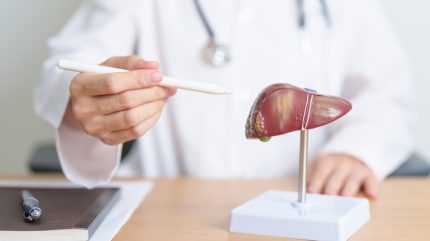Bluejay touts positive data for chronic hepatitis D treatment
05 Jun 2024
Clinical ResultOrphan DrugPhase 2siRNA

Preview
Source: Pharmaceutical Technology
BJT-778 is a monoclonal antibody that acts against hepatitis B surface antigen (anti-HBsAg mAb). Credits: Jo Panuwat D / Shutterstock.
Bluejay Therapeutics has released positive preliminary data from a Phase II study of its human IgG1 monoclonal antibody, BJT-778, for the treatment of patients with chronic hepatitis D (CHD).
Recommended Buyer's Guides

Preview
Source: Pharmaceutical Technology
Buyer's Guide
Leading Guide to Packaging Materials, Containers and Containment Services for the Pharmaceutical Industry

Preview
Source: Pharmaceutical Technology
Buyer's Guide
Top Guide for Drug Delivery Systems
The San Mateo, California-based biopharma presented the data at the European Association for the Study of the Liver (EASL) Congress 2024. All 10 patients treated with 300 mg of BJT-778 in Arm 1 demonstrated a virologic response by Week 28. Virologic response was defined by patients demonstrating a minimum reduction of 2 logs in the hepatitis D virus (HDV) RNA or by becoming HDV RNA undetectable.
As per the 5 June press release, all Arm 1 patients showed a reduction from baseline in alanine aminotransferase (ALT), reductions which suggest a positive effect on liver inflammation. However, while 67% of patients were reported to have reached ALT normalization, a decline in ALT levels was observed in one participant who began treatment at a normal ALT. The endpoint of compositive response was attained by 67% of the treatment arm.
The Phase II study has enrolled 31 patients that are divided into three treatment arms to receive three ascending doses of BJT-778 across a total of 48 weeks. Patients enrolled in Arm 1 are being administered 300 mg of subcutaneous BJT-778 for 48 weeks. Patients in Arm 2 are receiving once weekly subcutaneous 600 mg BJT-778 for 12 weeks followed by biweekly treatment for 36 weeks while patients in Arm 3 are provided 900 mg subcutaneous biweekly treatment for 4 weeks followed by once-daily treatment every four weeks for 44 weeks.
Data from Arm 2 showed that of the 11 treated patients, 80% attained virologic response by Week 12. ALT was also seen to have declined in most of the evaluated participants. Bluejay also shared that the treatment has been well tolerated at all dose levels, with no patients experiencing Grade ¾ adverse events and no event related treatment discontinuations.
See Also:FDA hearing set to discuss advisory committee members’ conflicts and more

Preview
Source: Pharmaceutical Technology

Preview
Source: Pharmaceutical Technology
BJT-778 is a monoclonal antibody that acts against hepatitis B surface antigen (anti-HBsAg mAb), removing hepatitis B and hepatitis D virions with the aim of reestablishing antiviral immunity. In June 2023, Bluejay reported the completion of the Phase Ia study of the candidate and also announced that BJT-778 was awarded orphan and PRIME designation from the European Medicines Agency (EMA) based on early results from the Phase I/II CHD study.
For more details,please visit the original website
The content of the article does not represent any opinions of Synapse and its affiliated companies. If there is any copyright infringement or error, please contact us, and we will deal with it within 24 hours.
Hot reports
Get started for free today!
Accelerate Strategic R&D decision making with Synapse, PatSnap’s AI-powered Connected Innovation Intelligence Platform Built for Life Sciences Professionals.
Start your data trial now!
Synapse data is also accessible to external entities via APIs or data packages. Leverages most recent intelligence information, enabling fullest potential.





